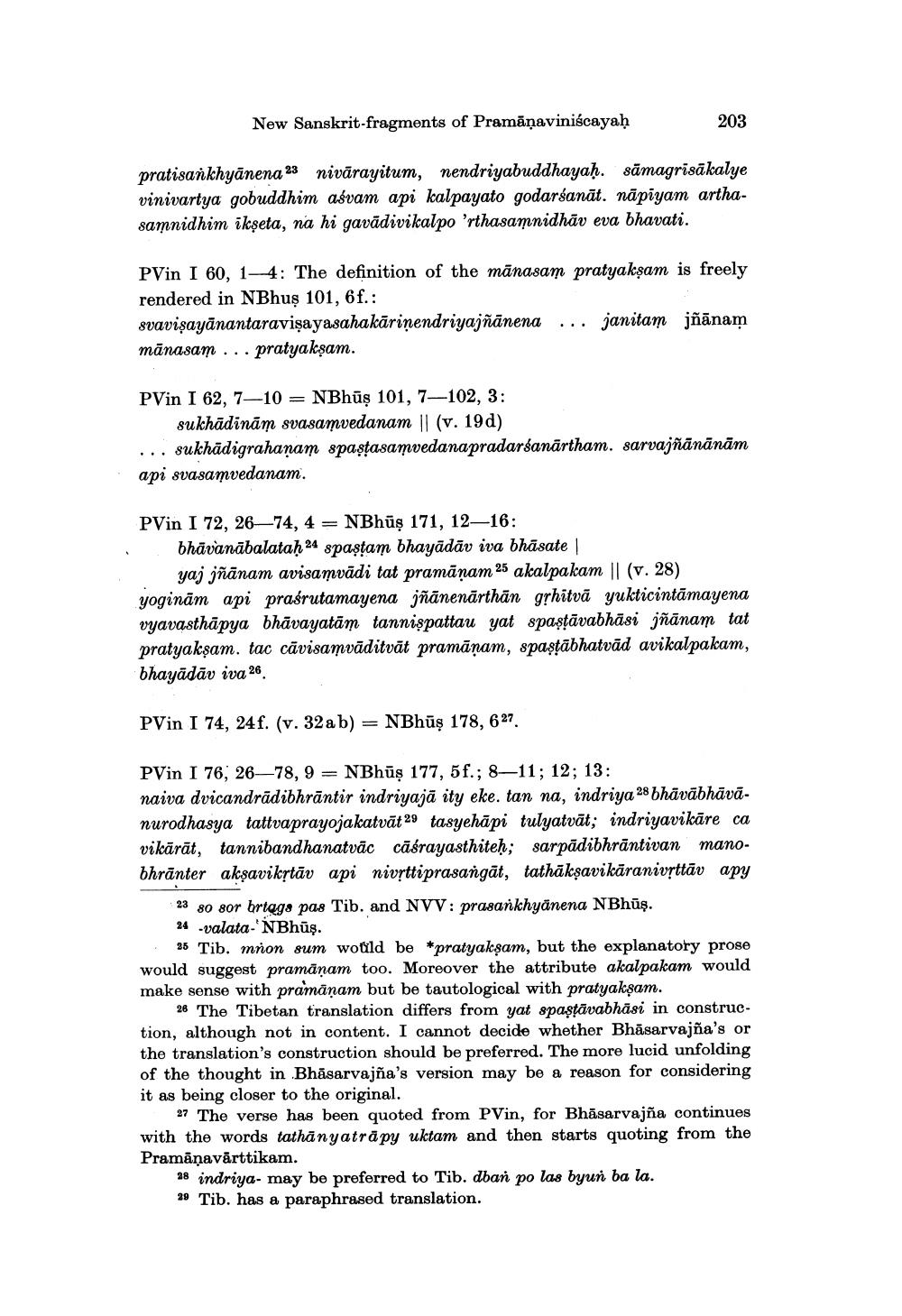________________
New Sanskrit-fragments of Pramāņaviniscayaḥ
203
pratisankhyānena 23 nivārayitum, nendriyabuddhayaḥ. Sāmagrīsākalye vinivartya gobuddhim aśvam api kalpayato godarśanāt. nāpīyam arthasamnidhim ikşeta, na hi gavādivikalpo 'rthasamnidhāv eva bhavati.
PVin I 60, 1-4: The definition of the mānasam pratyakşam is freely rendered in NBhuş 101, 6f.: svavişayānantaravişayasahakāriñendriyajñānena ... janitam jñānam mānasam ... pratyakşam.
PVin I 62, 7–10 = NBhūş 101, 7-102, 3:
sukhādinām svasamvedanam || (v. 19d) ... sukhādigrahanam spastasamvedanapradarsanārtham. sarvajñānānām api svasamvedanam.
PVin I 72, 2674,4 = NBhūş 171, 12–16:
bhāvanābalataḥ 24 spaştam bhayādāv iva bhāsate
yaj jñānam avisamvādi tat pramānam 25 akalpakam || (v. 28) yoginām api praśrutamayena jñānenārthān gļhitvā yukticintāmayena vyavasthāpya bhāvayatām tannispattau yat spastāvabhāsi jñānam tat pratyakşam. tac cāvisamvāditvāt pramānam, spastābhatvād avikalpakam, bhayādāv iva 26
PVin I 74, 24f. (v. 32 ab) = NBhūş 178, 627.
PVin I 76, 26–78, 9 = NBhūş 177, 5f.; 8—11; 12; 13: naiva dvicandrādibhrāntir indriyajā ity eke. tan na, indriya 28 bhāvābhāvānurodhasya tattvaprayojakatvāt 29 tasyehāpi tulyatvāt; indriyavikāre ca vikārāt, tannibandhanatvāc cāśrayasthiteh; sarpādibhrāntivan manobhrānter akşavikytāv api nivrttiprasangät, tathā kşavikäranivrttāv apy
23 80 sor brtage pas Tib. and NVV: prasankhyānena NBhūş. 24 -valata- NBhūş.
36 Tib. mron sum would be *pratyakşam, but the explanatory prose would suggest pramānam too. Moreover the attribute akalpakam would make sense with pramāņam but be tautological with pratyakşam.
28 The Tibetan translation differs from yat spastāvabhāsi in construction, although not in content. I cannot decide whether Bhāsarvajña's or the translation's construction should be preferred. The more lucid unfolding of the thought in Bhāsarvajña's version may be a reason for considering it as being closer to the original.
27 The verse has been quoted from PVin, for Bhāsarvajña continues with the words tathānyatrāpy uktam and then starts quoting from the Pramāņavārttikam.
28 indriya- may be preferred to Tib. dban po las byun ba la. 29 Tib. has a paraphrased translation.




